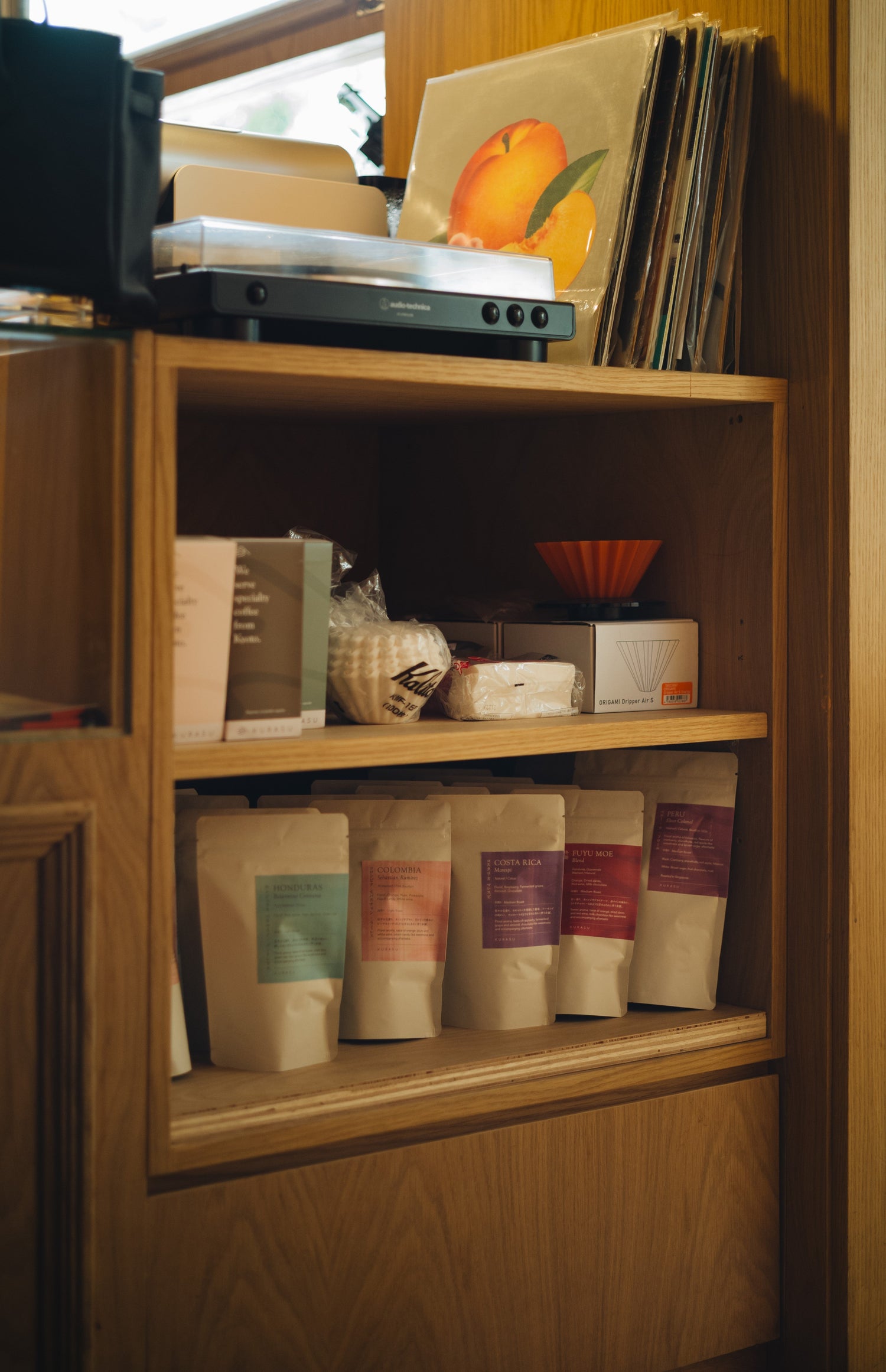Kurasu Kyoto
Cascara coffee cherry: Guatemala Jalapa Cascara Nano Lot
Cascara coffee cherry: Guatemala Jalapa Cascara Nano Lot
Unbelievably sweet and clean Cascara, produced with special “dry bicycle” de-pulping method
Barista's comment: "Unbelievably sweet and clean Cascara, achieved due the careful handling, care, and “dry bicycle” de-pulping. Just 5g steeped in hot water for 5min can make beautiful 180ml Cascara tea."
Flavor note: Rosehip, plum, honey, clean aftertaste
Area: New Oriente, Colis, Jalpa
Variety: Pache
Altitude: 1750~1867m
1:30 cascara to hot water ratio, steeped for 5 min gives unbelievably sweet and clean cascara tea.
Exclusive to Kurasu. We've purchased the whole lot from a micro farm in Jalapa, Guatemala
Notice of Price AdjustmentDue to a change in the manufacturer’s production lot, the selling price of this product has been revised. We apologize for any inconvenience this may cause and appreciate your kind understanding.
Couldn't load pickup availability
Share




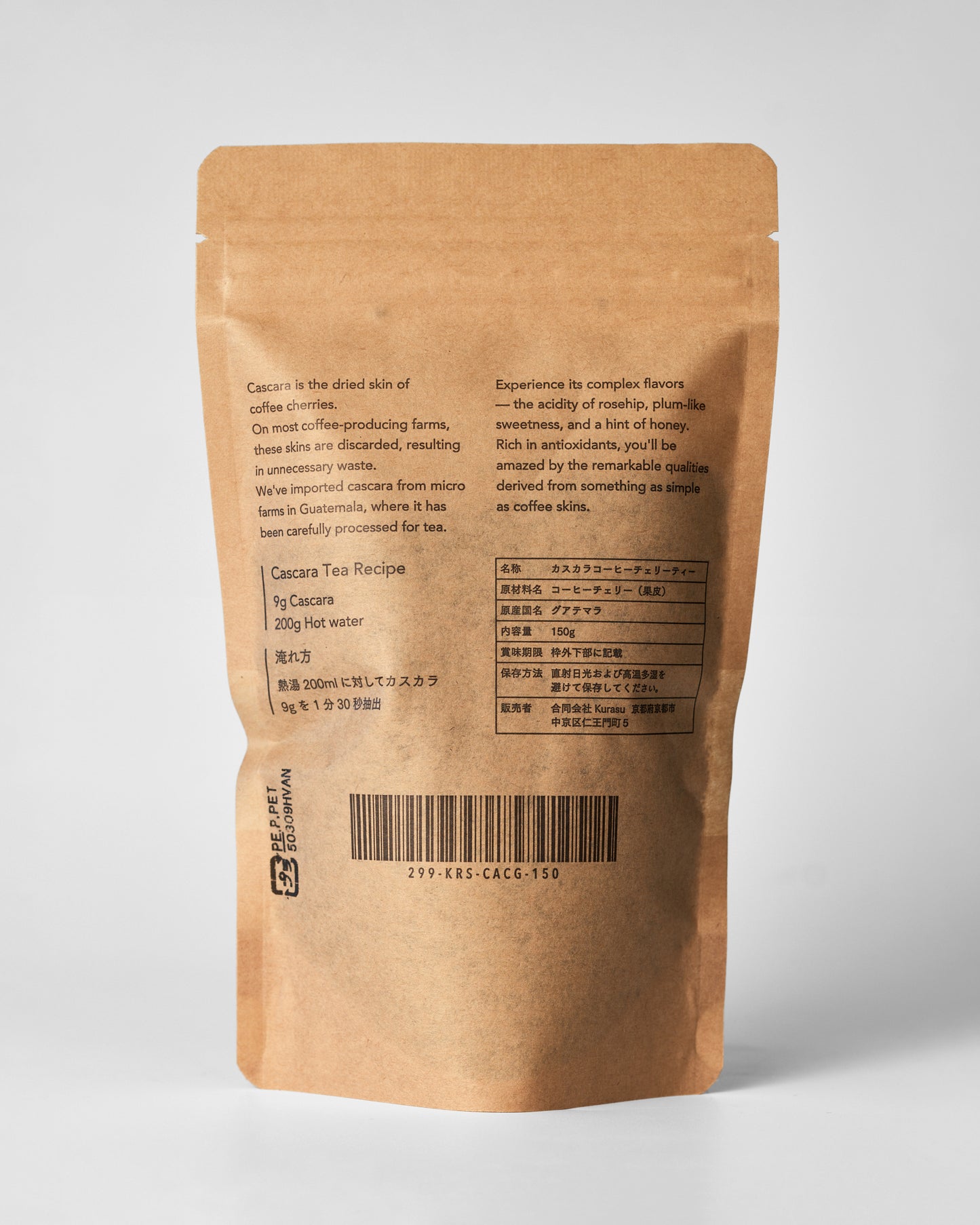
What's Cascara?
Cascara, also often referred to as "coffee cherry tea", is dried outer skins of coffee cherries. It has been considered a by-product of coffee making process, and often discarded in mass, if not used as a compost. Recently, however, cascara is gaining its popularity in specialty coffee scene as an exciting, new and tasty ingredients. After all, beautiful coffee comes from beautiful cherries- why waste?
This dark red, sun-dried fruit peel has a shell-like, leathery texture, and makes a tea-like infusion. The flavor is quite different from roasted coffee beans- sweet and a bit tart like rosehip or plum, and mellow as honey. Although it is caffeinated, the caffeine content is less than a brewed coffee for about 1/4 to 1/8.
You can explore quite a lot with it as well- you can make a syrup, or dried cascara can also be used as a "coffee flour", ground and mixed with wheat flour to be used in baking. Playing around with some spices like cinnamon and nutmeg to make it warmer and more fragrant infusion is also a known way to enjoy it.
What we love about introducing cascara at Kurasu is not just because it is especially high quality, gorgeous cascara, but because we feel that it is a wonderful way of up-cycling. As mentioned, cascara has been discarded most of the time, sometimes even causing a water pollution. Consuming cascara means less waste, less pollution, pioneering a new revenue source for the coffee farmers, all while enjoying a wonderful and curious encounter with coffee cherries.
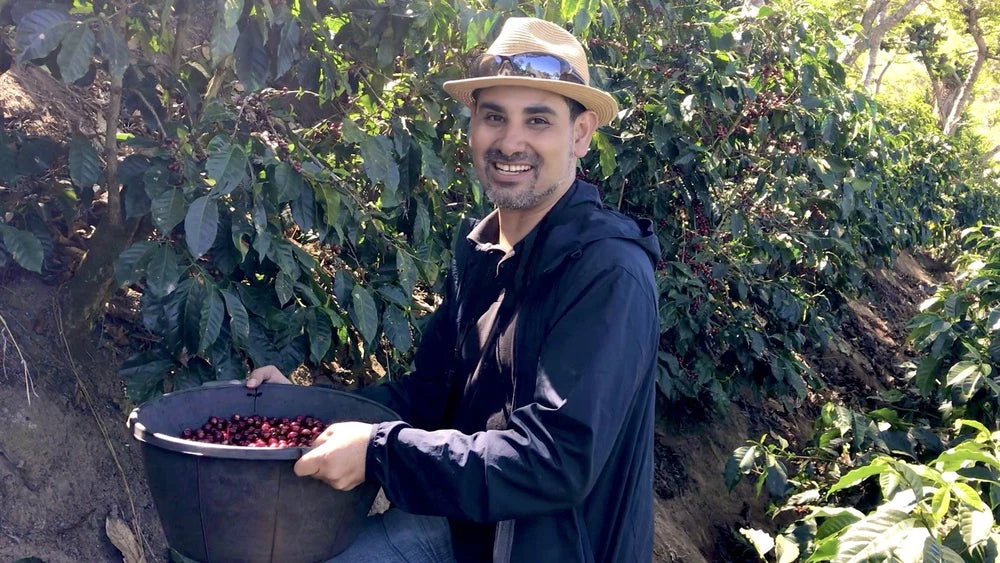
About the producer
GOOD COFFEE FARMS, run by Mr. Carlos Melen is an organization that supports small sized farmers in Guatemala to produce great coffee, in sustainably and eco-friendly way.
Amongst their numerous intriguing activities and novel ideas, there is their Dry Bicycle Pulping method. The pulping machine runs simply by pedalling, and it requires no electricity, no water, and causes no pollution.
Brewing Cascara Tea
Brewing delicious cascara is really quite simple and doesn't require any techniques.
The only adjustments are ratios and duration of brew which you can adjust depending on your flavor palate. The exceptional quality of the does not give astringency or negativity even when steeped for a longer time.
Here's how we're doing it in our cafes:
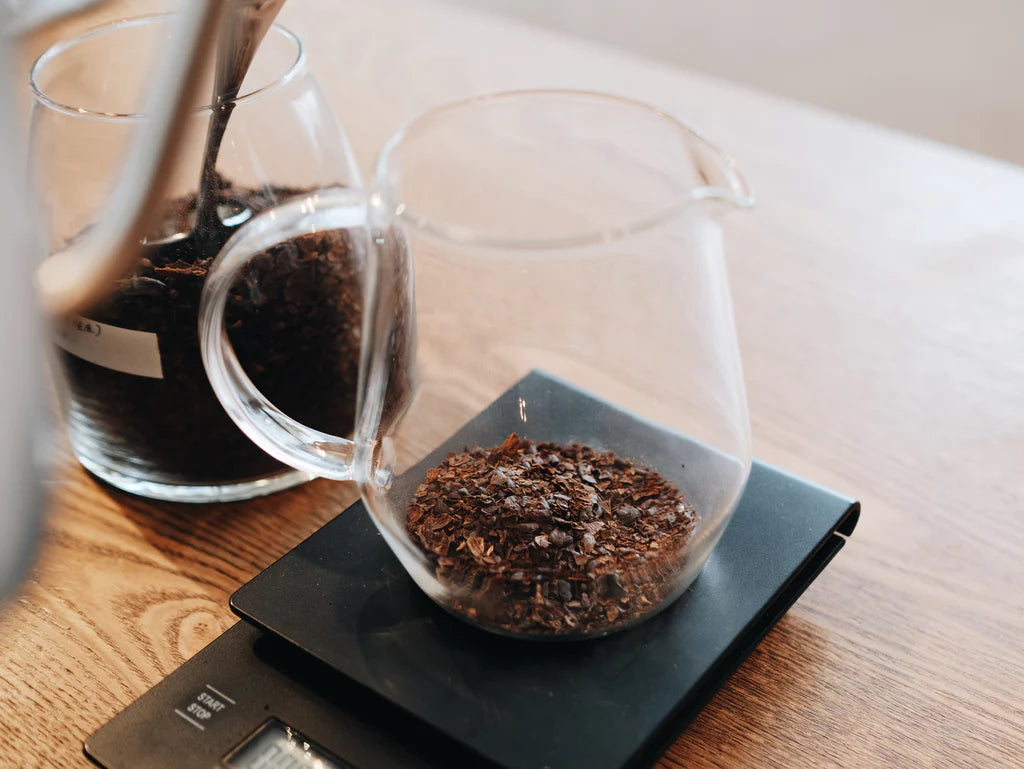
Prep 7.5g of cascara.
We'll use 200g of hot water from our hot water dispenser which is usually set to 96C (204F).
Around 1:30 (1:25~1:35) cascara to hot water ratio seems to work best.
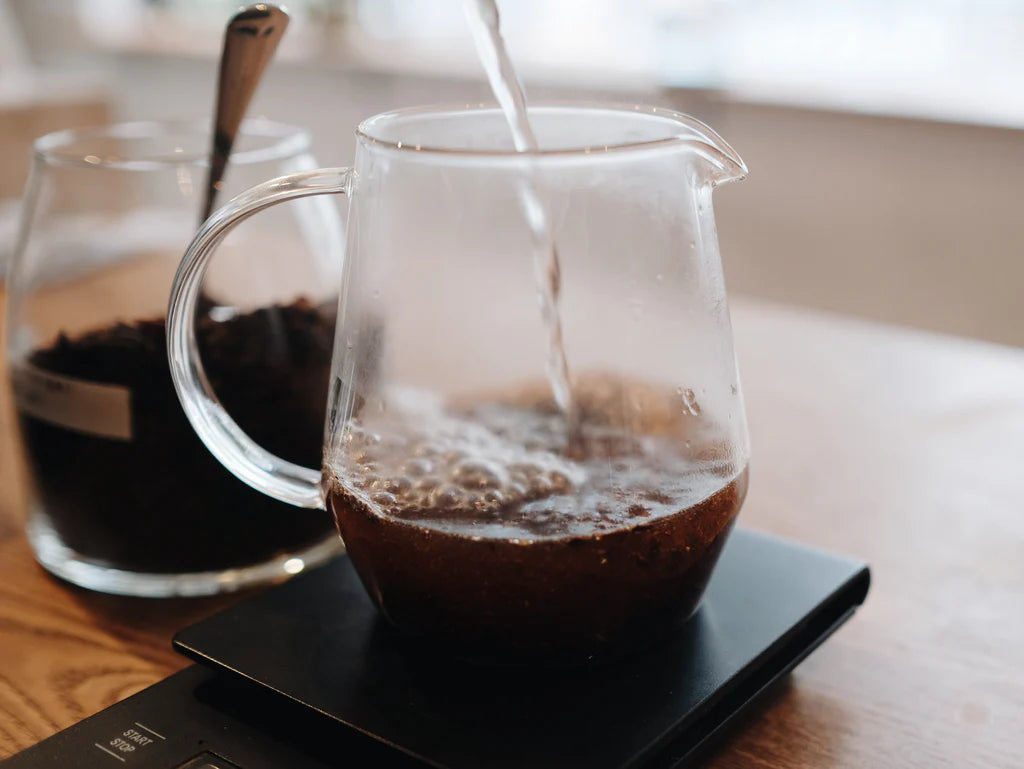
Directly pour in hot water into a glass server, stop at 200g.
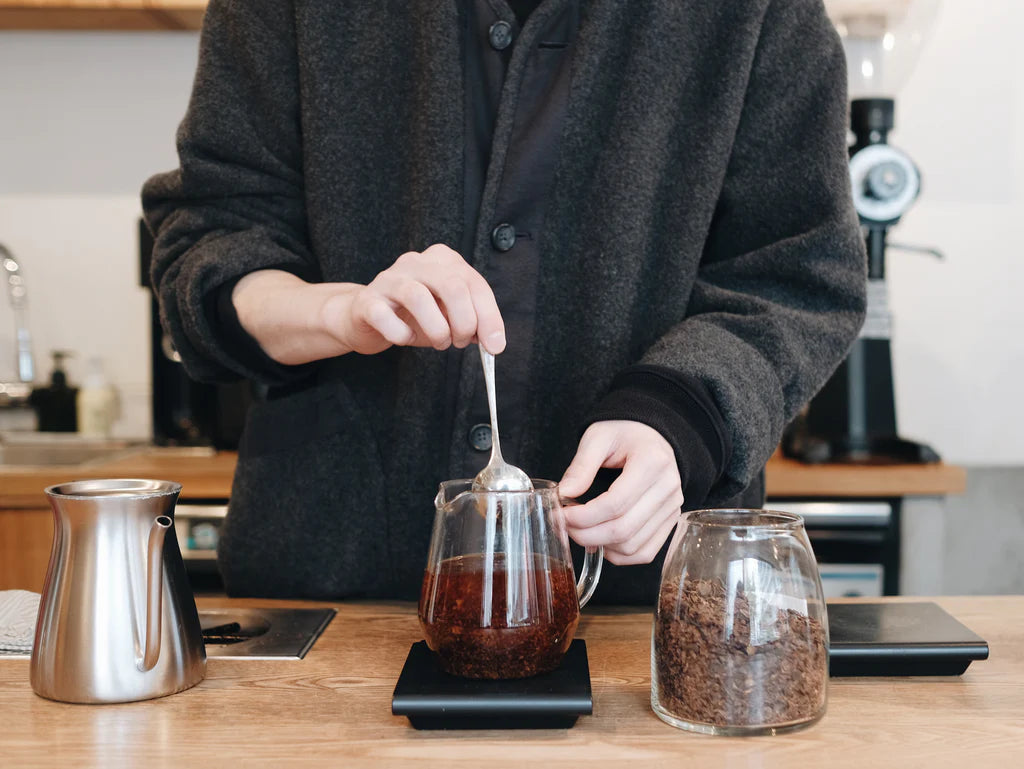
We'll give some agitation to the cascara, a few vigorous stirs with a spoon.
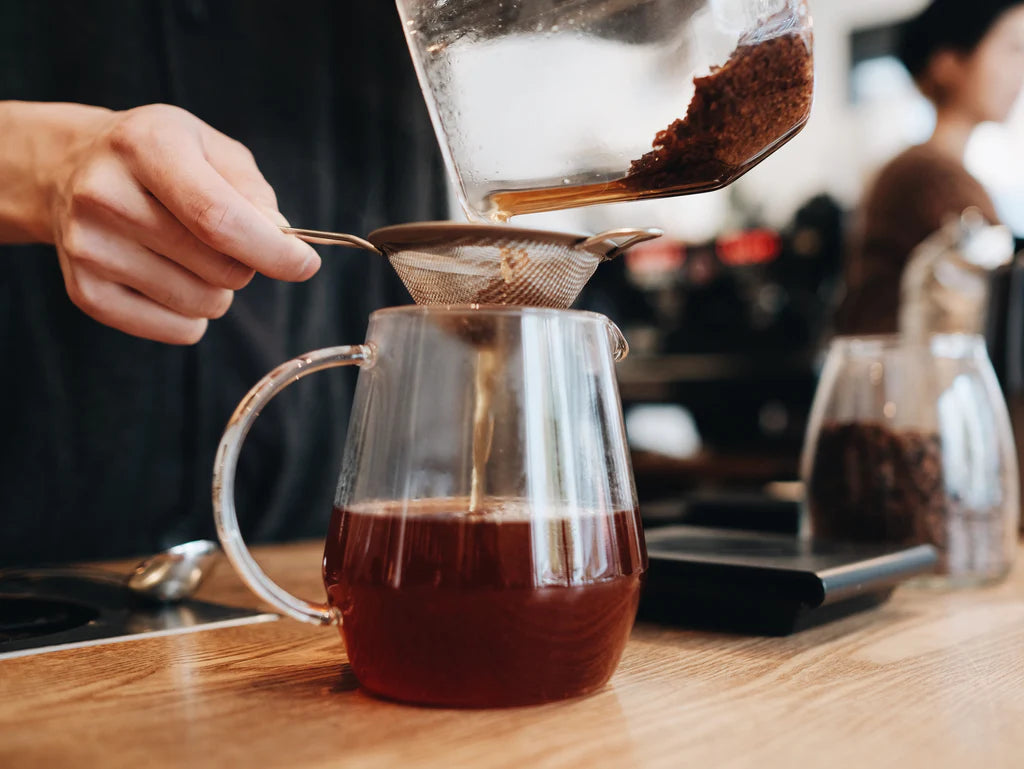
Strain cascara after 4 min.
We've tested up to 5 min, which gives good flavors but may take a bit took long a loose some temperature, especially in a fast cafe environment.
At home up to 5 min is totally fine.
Play around with the recipes! Enjoy!
